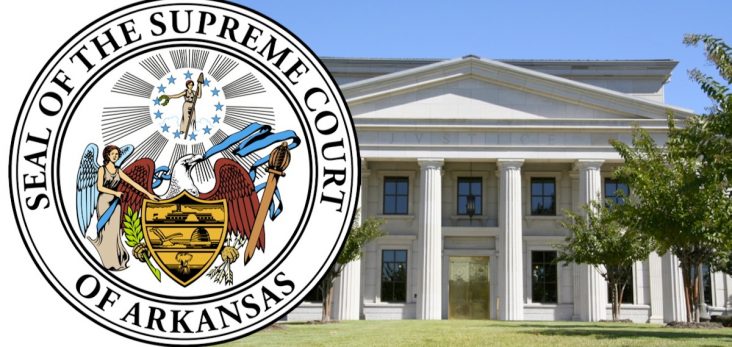Arkansas Supreme Court says Fort Smith board emails did not violate FOIA
by June 20, 2019 3:14 pm 1,423 views

The Arkansas Supreme Court has ruled Fort Smith city directors did not violate the state’s Freedom of Information Act (FOIA) when they used emails to discuss an issue. Thursday’s (June 20) court opinion reverses a lower court ruling.
Fort Smith resident Bruce Wade, represented by attorney Joey McCutchen, sued the city in 2017 claiming emails between several city directors about the employment practices of Fort Smith Police Chief Nathaniel Clark violated the open meeting rules within the FOIA. The emails centered on Clark’s desire to amend rules of the Civil Service Commission (CSC) to allow hiring and/or appointment of officer positions to include external applicants, a decision opposed by the Fraternal Order of Police (FOP) that was allowed to die for lack of motions at the commission’s May 22 meeting.
On Jan. 5, 2018, Sebastian County Circuit Judge J. Michael Fitzhugh said the series of emails written in May and August of 2017 between board members and City Administrator Carl Geffken were in violation of FOIA. Judge Fitzhugh ruled in favor of Wade, noting that “Under the facts of this case the Court concludes that informal meetings subject to the FOIA were held by way of emails. The purpose of which was to either opine or survey the members as to the demise of the CSC and/or acceptance/rejection of a settlement.”
“These are clearly matters that should have occurred in a public setting,” Fitzhugh wrote, adding that the city was “permanently enjoined from conducting public business in this matter without notice.”
The state Supreme Court did disagree with the city’s argument that the FOIA does not apply to email. The court said allowing email conversations to fall outside the FOIA would “leave the public in the dark, and subvert the purpose of FOIA’s open-meeting provisions.” Judge Courtney Goodson wrote the majority opinion. (Link here for a PDF of the majority and dissenting opinions.)
“We liberally construe FOIA to accomplish its broad and laudable purpose that public business be performed in an open and public manner,” the court noted. “We therefore have no difficulty in concluding that FOIA’s open-meeting provisions apply to email and other forms of electronic communication between governmental officials just as surely as they apply to in-person or telephonic conversations.”
However, the court ultimately agreed with the city that the content of the emails did not violate the FOIA because “no response was solicited.” The court said the email exchanges “contain information, a recommendation, and unsolicited responses with no decision.” The court also said the board discussed the issue and took action in public meetings.
The court decision was not unanimous. Justices Josephine Hart, Shawn Womack, Rhonda Wood, and Robin Wynne did not agree with the decision to reverse the Circuit Court ruling. Judge Hart said it did not matter if email discussions include responses or decisions. She said the discussion by board members of matters that might come before the full board is a discussion about the public’s business.
“In the case before us, the email group was established to discuss public business, which the directors obviously did. Today’s majority opinion denies the electorate in Fort Smith insight into the performance of its elected officials and allows those public officials to make their decisions in secret. Secrecy is poison to democracy. On this point, I respectfully dissent.”
Thursday’s court ruling also sends the case back to the lower court.
McCutchen told Talk Business & Politics he plans to appeal the decision. He also said the case is more proof the “Legislature is going to have to step in and do their job and define what they think a meeting is.”
“This decision will encourage government actors to undermine the lines of transparency, and that will undermine the ability of all Arkansans to view the actions of all officials,” McCutchen said.
Fort Smith City Administrator Carl Geffken said the ruling shows the city followed the law and was not conducting city business in a secret manner.
“The City of Fort Smith now and always respects and champions Arkansas’ ‘Sunshine Law.’ Administration, staff, and the Board respect and are committed to upholding the people’s rights, the people’s will, and the spirit of the FOIA law in open, representative municipal government,” Geffken said in a statement. “We were confident the court would find in our favor because we did follow the law. We appreciate this vindication, and we will continue to do the right thing; to abide by all requirements for open, public meetings and public records.”
Geffken also said he recognizes city government “belongs to the people,” and the city will “continue our work to ensure that our actions reflect and are in the best interest of the people for whom we work.”
